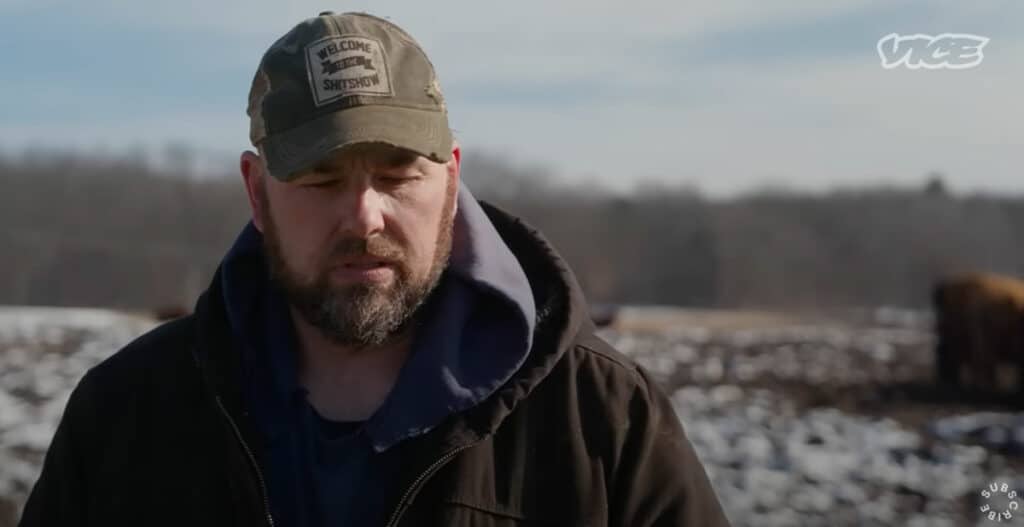PFAS contamination shuts down 100-year-old Grostic Farms

Jason Grostic, a farmer in Livingston County, was trying to do everything right. This farmer took pride in trying to raise cattle safely and provide safe food for people in his community. He took steps to make his farm sustainable and provide beef locally. He also volunteered to have state officials sample his soil, water and products to make sure his farm was free of harmful contaminants. Then they found toxic PFAS “forever chemicals” in the soil and in the cattle. The story is heartbreaking and infuriating.
Where the PFAS came from
The PFAS came from treated waste applied from wastewater treatment plants, which is commonly distributed as fertilizer to farmers for free. While this idea may be off-putting to some, the practice is something many responsible farmers do. Repurposing nutrient-rich waste is not just good stewardship of their own soil but can improve the health of the larger ecosystem they’re connected to. It avoids the introduction of fertilizers brought from farther away and taken from less environmentally-friendly sources.
What’s more, waste from wastewater treatment plants is abundant. It turns out humans generate a lot of waste. The waste all has to go somewhere, so why not reapply it to farm fields for free? It makes perfect sense so long as everyone in the process is being honest and transparent about what exactly is in those biosolids.

In the case of Grostic Farms, the source of the biosolids was the Wixom Wastewater Treatment Plant. The biosolids were contaminated by years of PFAS use from Tribar Technologies, an auto parts manufacturer that makes shiny, chrome-plated car parts. Tribar discharges their industrial waste to Wixom Wastewater Treatment Plant before it’s treated and discharged to a tributary of the Huron River.
Should the polluter’s interests take priority?
Tribar is notorious throughout Michigan, often cited as the perfect example of an unscrupulous company by state lawmakers. Their pollution caused the Do Not Eat Fish advisory to be applied to much of the Huron River, and their negligence caused the hexavalent chromium scare in the summer of 2022. The company has a poor safety record and has been cited for numerous violations.
There is no way Jason Grostic could have known the biosolids he was accepting were contaminated with PFAS. Neither Tribar nor the Wixom Wastewater Treatment plant had to disclose their use of PFAS or the level of PFAS in biosolids during the period they were being applied to Grostic Farms.
As WEMU’s Issues of the Environment recently reported, the state forced Jason Grostic to shut down his 100-year-old cattle farm due to the PFAS contamination. Meanwhile, state regulators continue to allow Tribar to use PFAS and hexavalent chromium to this day.
Jason can’t make income off his farm but the state is making him care for his cattle at substantial expense. He is being held financially responsible for a problem that was no fault of his own while the guilty parties pay nothing. To the rest of us watching this story unfold, the injustice is maddening.
To his credit, Jason is suing Tribar and is advocating for farmers across the country. His efforts are critical and urgently needed. He runs one of only several farms around the country confirmed to be contaminated with PFAS. Others have been found in places like Maine and New Mexico, but make no mistake: this problem will affect farmers everywhere, in every state. The only reason more farms haven’t faced the same challenge is that regulators don’t want to look for PFAS. They know they will find it and they don’t know what to do about it.
Limited support for a growing farm problem
Michigan has taken significant steps to address PFAS. Drinking water standards and cleanup criteria have been established for a handful of PFAS chemicals. State agencies like the Michigan Department of Natural Resources (MDNR) and the Department of Environment, Great Lakes and Energy (EGLE), are also actively incorporating PFAS concerns into their public health and environmental monitoring procedures. Noticeably absent from most of those discussions, however, is the Michigan Department of Agriculture and Rural Development (MDARD). MDARD has conspicuously done very little to address PFAS or understand the scope of contamination. Shortly after Governor Snyder took initial actions to address PFAS, MDARD officials objected to the idea of expanded sampling of farms and biosolids.
HRWC staff and local community members have repeatedly expressed concerns that a farmer was willing to do things right, pursue sustainability, have his soil tested by the state and then was shut down without significant penalties against the actual polluters. That sets a chilling precedent for other farmers who may now be hesitant to work with state regulators out of fear that their own farms are contaminated.
Polluter pay bills for farm protection
The problem of PFAS in farms highlights several failures of pollution regulation, enforcement, and funding. Permit applications from polluters that should obviously be rejected are granted, allowing toxic chemicals to continue to flow into the environment. Known polluters are not required to be as transparent as they need to be to protect their neighbors. The profits of industrial manufacturers are prioritized over public health, a sustainable environment, and the well-being of businesses that rely on agriculture, tourism, or recreation.
During a recent symposium on the topic, Jason Grostic spoke for the need for stiff polluter pay laws to hold companies like Tribar accountable. Other advocacy groups, HRWC included, believe that we also need to provide robust financial assurance to farms, developers, and other businesses that rely on a healthy environment. That funding for that financial assurance should come from the manufacturers and industrial users of toxic chemicals. They are responsible for the pollution and the costs associated with its use.
Senator Jeff Irwin and Representative Jason Morgan have proposed polluter pay bills that aim to address those current failures. The bills create transparency around contaminations and cleanups; prevention through better more strict cleanup standards; and prioritize people over polluters by requiring medical monitoring and better access to justice. Among other beneficial outcomes, the new laws would also provide financial assurance to residents and other businesses for cleanup efforts.



